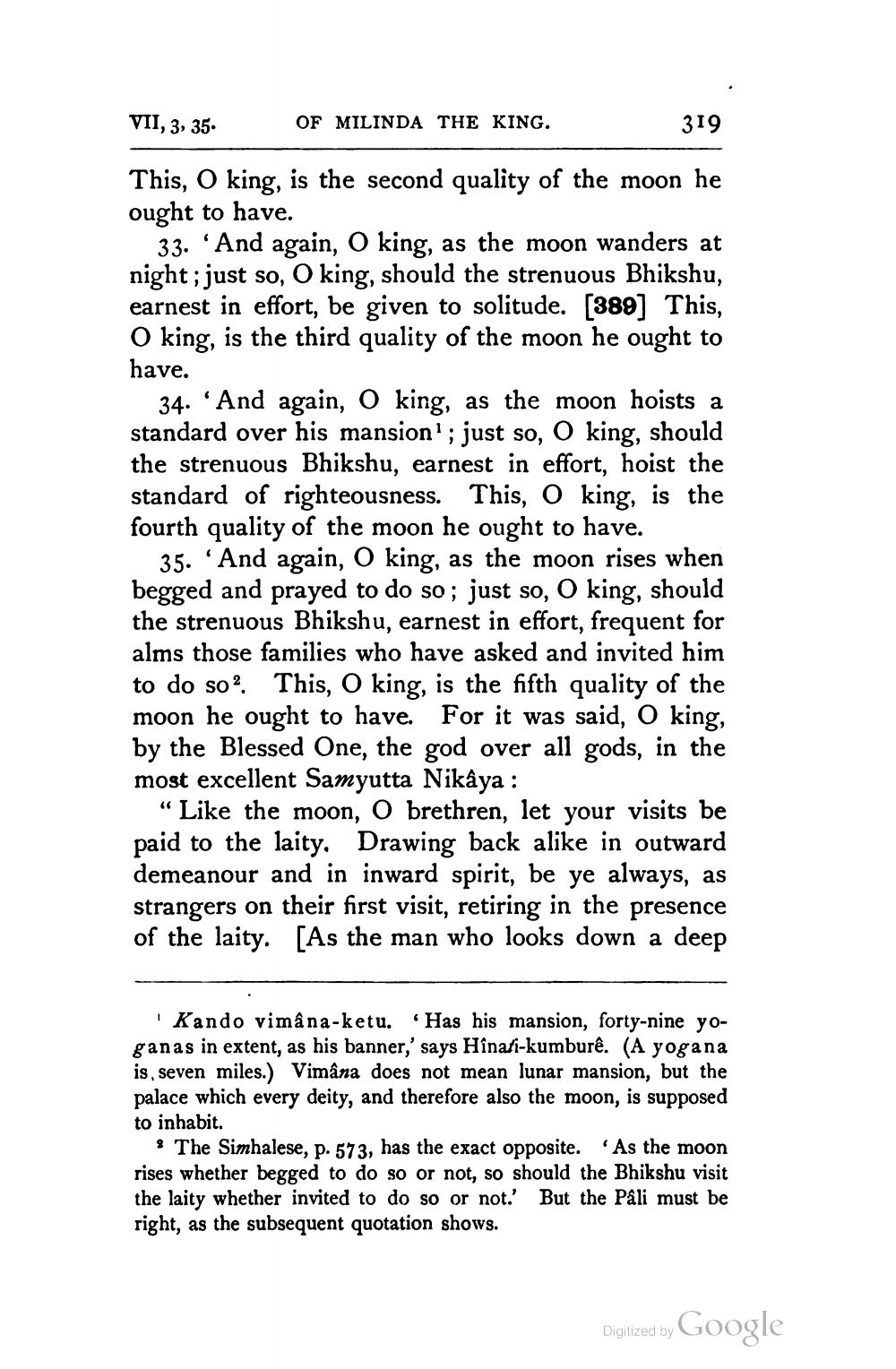________________
VII, 3, 35.
OF MILINDA THE KING.
319
This, O king, is the second quality of the moon he ought to have.
33. 'And again, O king, as the moon wanders at night; just so, O king, should the strenuous Bhikshu, earnest in effort, be given to solitude. [389] This, O king, is the third quality of the moon he ought to have.
34. 'And again, O king, as the moon hoists a standard over his mansion"; just so, O king, should the strenuous Bhikshu, earnest in effort, hoist the standard of righteousness. This, o king, is the fourth quality of the moon he ought to have.
35. 'And again, O king, as the moon rises when begged and prayed to do so ; just so, O king, should the strenuous Bhikshu, earnest in effort, frequent for alms those families who have asked and invited him to do so? This, O king, is the fifth quality of the moon he ought to have. For it was said, O king, by the Blessed One, the god over all gods, in the most excellent Samyutta Nikaya:
“ Like the moon, O brethren, let your visits be paid to the laity. Drawing back alike in outward demeanour and in inward spirit, be ye always, as strangers on their first visit, retiring in the presence of the laity. [As the man who looks down a deep
'Kando vimâna-ketu. Has his mansion, forty-nine yoganas in extent, as his banner,' says Hinati-kumburê. (A yogana is, seven miles.) Vimâna does not mean lunar mansion, but the palace which every deity, and therefore also the moon, is supposed to inhabit.
? The Simhalese, p. 573, has the exact opposite. As the moon rises whether begged to do so or not, so should the Bhikshu visit the laity whether invited to do so or not. But the Páli must be right, as the subsequent quotation shows.
Digitized by Google




